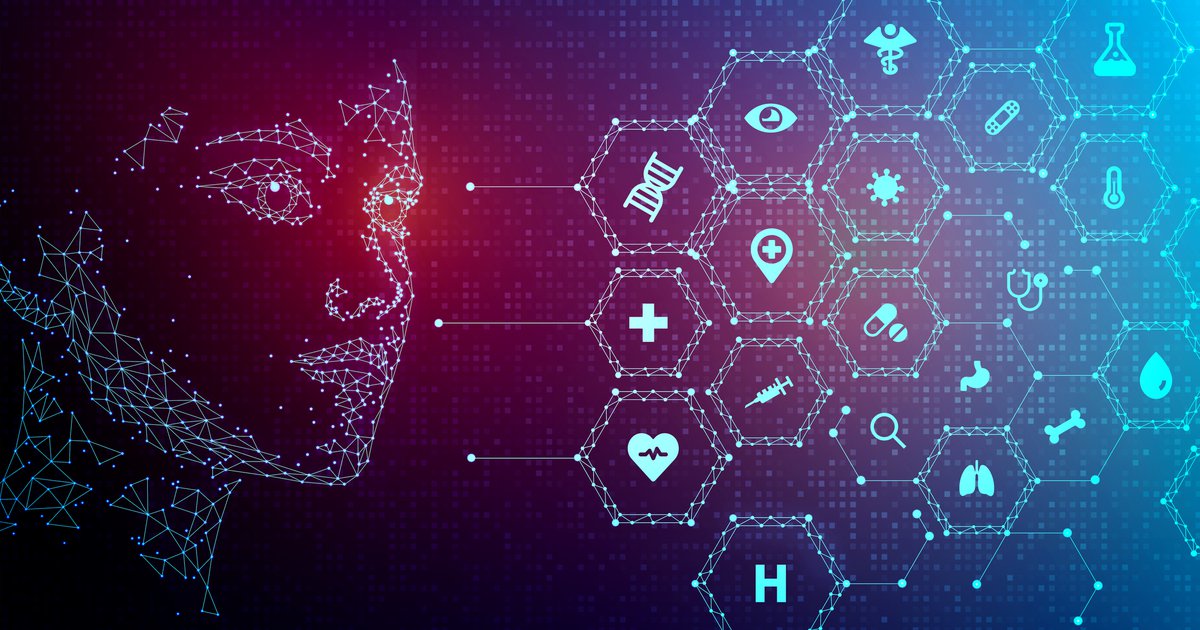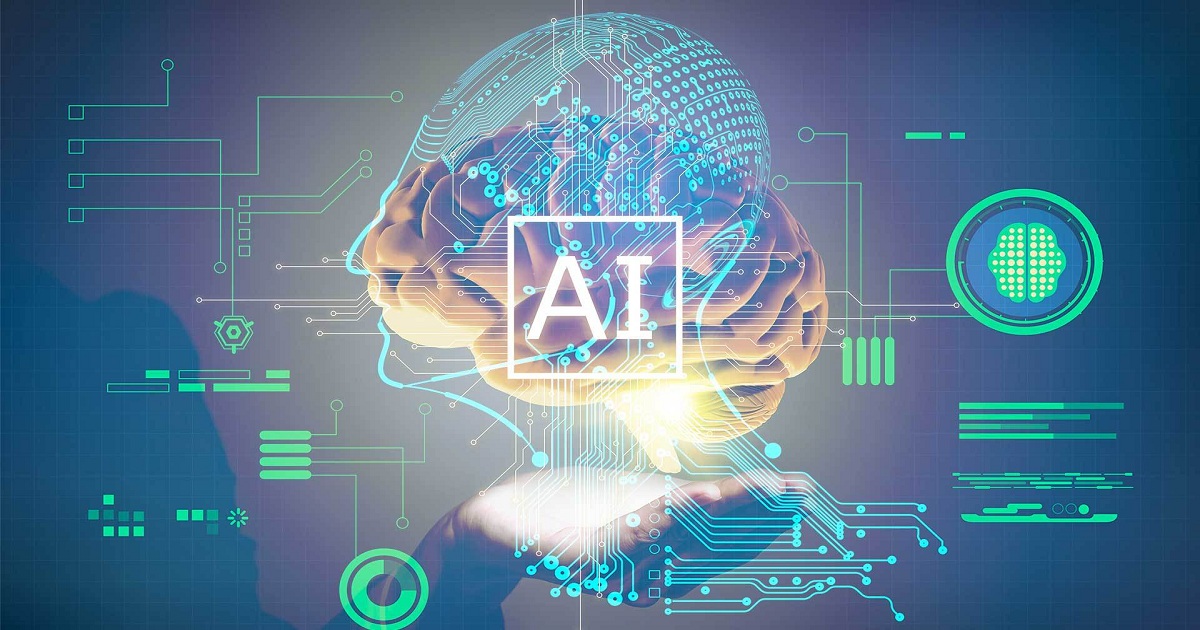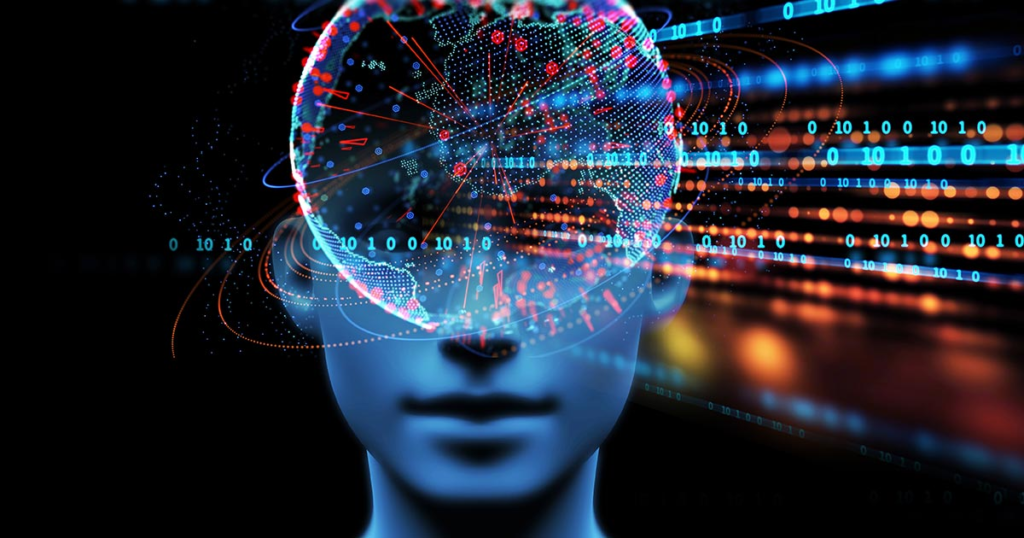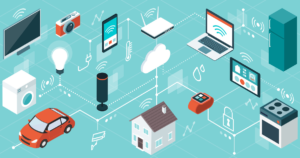How Artificial Intelligence Is Transforming the Healthcare Industry
In recent years, the confluence of Artificial Intelligence (AI) and the healthcare industry has sparked a transformative wave. This marriage of technology and medicine holds the promise of revolutionizing healthcare in ways previously unimaginable. In this article, we’ll embark on a journey through the profound impacts of AI on the healthcare sector, from diagnosis and personalized treatment plans to drug discovery, administrative tasks automation, and the rise of telemedicine and virtual health assistants.
Understanding AI in Healthcare

Defining Artificial Intelligence
At its core, Artificial Intelligence (AI) is the development of computer systems capable of performing tasks that traditionally required human intelligence, such as visual perception, speech recognition, decision-making, and problem-solving. In the context of healthcare, AI leverages these capabilities to enhance medical practices, improve patient care, and streamline administrative processes.
AI Applications in Healthcare
AI’s entry into the healthcare realm brings a multitude of applications, each offering a unique approach to improving patient care, medical practices, and the healthcare system as a whole. Let’s explore these applications in greater detail:
Diagnosis and Disease Prediction
AI algorithms are now adept at analyzing vast troves of medical data, from patient records to diagnostic images, to aid in early disease detection and predict health risks. These intelligent systems act as early warning mechanisms, alerting healthcare professionals to potential health issues before they manifest clinically. Such early interventions can be life-saving.
Personalized Treatment Plans
Gone are the days of one-size-fits-all treatment plans. AI tailors treatment regimens to individual patients based on a comprehensive analysis of their medical history, genetic makeup, and other pertinent factors. Predictive analytics, honed by machine learning, guide healthcare providers in choosing the most effective medications and therapies, optimizing outcomes while minimizing adverse effects.
Drug Discovery and Development
The pharmaceutical industry is experiencing a seismic shift with the incorporation of AI. These powerful algorithms expedite the drug discovery process by analyzing vast datasets, identifying potential drug candidates, repurposing existing medications for new purposes, optimizing clinical trial designs, and accelerating the identification of drug targets. In essence, AI is dramatically shortening the time it takes for groundbreaking drugs to reach the market, potentially saving lives.
Administrative Tasks Automation
AI is alleviating the administrative burden that has long plagued healthcare providers. It streamlines the often convoluted medical billing processes, reduces paperwork, and automates appointment scheduling. This newfound efficiency means that healthcare professionals can invest more time in patient care and less in paperwork, enhancing the overall patient experience.
Telemedicine and Virtual Health Assistants
Telemedicine is on the rise, and virtual health assistants have become indispensable. AI powers virtual consultations, which enable patients to access healthcare services from the comfort of their homes. These virtual health assistants, like knowledgeable healthcare companions, offer information, guidance, and reminders, thus improving patient engagement and adherence to treatment plans. Remote patient monitoring, facilitated by AI, keeps track of vital signs and health data, allowing healthcare providers to intervene proactively when issues arise, especially important in the context of the ongoing COVID-19 pandemic.
AI-Powered Diagnostics

Early Disease Detection
AI-driven diagnostics are not only changing the way diseases are diagnosed but also their outcomes. By analyzing patient data and recognizing patterns, AI helps healthcare professionals identify diseases in their incipient stages when they are most treatable. Early detection of diseases like cancer or diabetes can make a significant difference in patient outcomes.
Improved Medical Imaging
AI is enhancing medical imaging in numerous ways, including X-rays, MRIs, and CT scans. These technologies assist radiologists and pathologists in interpreting images more accurately and swiftly, reducing the potential for human error. This development is especially significant when it comes to conditions like strokes or tumors, where precise imaging can be a matter of life and death.
AI in Laboratory Testing
In the laboratory, AI plays a critical role in enhancing accuracy and speed. It automates routine testing procedures, ensuring that results are not only more consistent but also available much faster. Predictive analytics provide laboratories with the ability to identify trends and anomalies, which can be crucial in research and diagnosis.
Personalized Treatment Plans
AI extends personalization to treatment plans as well. It takes into account a patient’s unique medical profile and tailors treatment protocols to maximize effectiveness while minimizing side effects. This tailoring is particularly valuable in fields like oncology, where the side effects of treatments can be debilitating.
Drug Discovery and Development
Accelerating Drug Research
The pharmaceutical industry is harnessing AI’s analytical capabilities to identify potential drug candidates and expedite drug research. By analyzing vast datasets, AI can predict potential drug candidates, identify existing drugs that could be repurposed for new medical uses, and optimize clinical trials, potentially shortening the time it takes for new drugs to reach the market.
Drug Repurposing
AI can identify existing drugs that have the potential to be repurposed for the treatment of different conditions. This has the potential to save considerable time and resources in drug development, as these drugs have already undergone extensive safety testing.
Clinical Trials Optimization
AI optimizes clinical trials by identifying suitable candidates for studies, streamlining data collection, and enhancing the chances of successful drug development. This streamlining of the clinical trial process can lead to faster approvals and bring new treatments to patients more rapidly.
Target Identification
AI assists in identifying potential targets for drug development by analyzing a wide range of data sources, including genetic, molecular, and clinical data. This approach offers new avenues for tackling diseases and finding new therapeutic targets.
Enhancing Administrative Tasks
Streamlining Medical Billing
Medical billing can be a complex and error-prone process, but AI streamlines it by automating billing codes, reducing the risk of errors, and expediting reimbursement. This not only benefits healthcare providers but also ensures that patients receive accurate bills in a more timely fashion.
Reducing Administrative Burden
By automating administrative tasks, AI allows healthcare professionals to focus more on patient care, reducing the administrative burden and enhancing overall efficiency. Administrative tasks, such as managing patient records and scheduling appointments, can consume a significant amount of time, and automating these processes can free up healthcare professionals to spend more time with patients.
Automating Appointments and Scheduling
AI simplifies the process of appointment scheduling, ensuring that patients get timely access to healthcare services. This not only benefits patients by reducing wait times but also improves the efficiency of healthcare facilities.
Data Management and Security
AI is instrumental in handling and securing vast amounts of medical data, ensuring that patient records remain confidential and easily accessible when needed. The management of this data is crucial for delivering high-quality healthcare and protecting patient privacy.
Telemedicine and Virtual Health Assistants

Telehealth Growth
The growth of telehealth has been accelerated by AI, particularly in the wake of the COVID-19 pandemic. Telehealth allows patients to access healthcare services remotely, reducing the need for in-person visits and expanding access to care.
AI-Powered Virtual Consultations
Virtual consultations with healthcare providers, powered by AI, are becoming more common. Patients can receive medical advice and diagnosis from the comfort of their homes, making healthcare more accessible and convenient.
Virtual Health Assistants
Virtual health assistants are like knowledgeable healthcare companions, providing information, guidance, and reminders. They improve patient engagement and adherence to treatment plans, which is essential for managing chronic conditions and ensuring that patients follow their prescribed therapies.
Remote Patient Monitoring
AI-enabled remote patient monitoring tracks patients’ vital signs and health data, allowing healthcare providers to intervene proactively if issues arise. This is especially valuable for patients with chronic conditions who need ongoing care and monitoring.
AI Challenges and Ethical Concerns
Privacy and Data Security
The use of AI in healthcare necessitates strict measures to protect patient privacy and data security. Striking the right balance between data access and patient confidentiality is an ongoing challenge. Safeguarding sensitive medical information from data breaches and unauthorized access is paramount.
Bias in AI Algorithms
AI algorithms are not infallible and can inherit biases present in the data they are trained on. This can lead to unequal or incorrect treatment recommendations. Addressing these biases is crucial, as they can result in disparities in healthcare outcomes.
Regulatory Compliance
AI applications in healthcare must adhere to stringent regulatory standards to ensure patient safety and efficacy. Navigating these regulations is a complex task, and healthcare organizations must invest in compliance to avoid legal and ethical issues.
Professional Acceptance
Healthcare professionals must adapt to AI-driven tools and systems. Building trust in AI applications among healthcare workers is essential for their successful integration. Ensuring that professionals are comfortable using AI and understand its value in patient care is crucial for the technology’s acceptance.
Real-World AI Success Stories
IBM Watson’s Impact
IBM Watson has made significant strides in the healthcare sector, assisting with diagnosis, drug discovery, and treatment recommendations. Watson’s AI capabilities have demonstrated their value in improving healthcare outcomes and helping healthcare professionals make more informed decisions.
Google Health’s Initiatives
Google Health is pioneering AI in healthcare, developing tools to improve medical imaging and patient outcomes. Its work in using AI to enhance the accuracy and efficiency of diagnostic processes is particularly promising.
Startups and Healthcare AI
Numerous startups are entering the healthcare AI space, focusing on various aspects of patient care, drug development, and administrative tasks. These startups often bring innovation and agility to the healthcare sector, driving advancements in technology and patient care.
AI in Pandemic Response
AI played a critical role in responding to the COVID-19 pandemic. It aided in data analysis, vaccine development, and public health measures. The pandemic highlighted the importance of AI in healthcare, showcasing its potential in addressing large-scale health crises.
The Future of AI in Healthcare

AI in Population Health Management
AI will continue to evolve in population health management, helping predict and prevent health issues on a broader scale. By analyzing population-wide data, AI can assist in identifying trends, potential outbreaks, and areas where healthcare resources are needed most.
Augmented Reality in Surgery
AI and augmented reality are set to revolutionize surgery. Augmented reality guidance systems will offer real-time assistance during surgical procedures, enhancing precision and reducing the risk of complications.
Robotic Process Automation
Robotic process automation powered by AI will further streamline administrative tasks, reducing errors and costs. This is crucial for improving the efficiency of healthcare facilities and ensuring that administrative tasks do not hinder patient care.
AI in Mental Health Care
AI applications in mental health care will improve early diagnosis and treatment planning for mental health conditions. By analyzing behavioral data and identifying patterns, AI can assist in diagnosing conditions like depression and anxiety.
Ethical AI Development
Developing AI with ethical principles is essential. Addressing bias and fairness issues will be central to the future of AI in healthcare. As AI systems continue to evolve and play a more significant role in patient care, ensuring they are developed and used ethically will be crucial for maintaining trust and improving healthcare outcomes.
Conclusion
As we stand at the intersection of AI and healthcare, the transformation is ongoing, leading us toward a patient-centric approach. Preparing for an AI-driven future is imperative as we navigate the ethical, technological, and regulatory challenges that come with this revolutionary journey. The promise of AI in healthcare is vast, and it holds the potential to enhance patient care, improve outcomes, and usher in a new era of medicine. With the right safeguards in place, AI can indeed be a powerful force for good in the healthcare industry, making healthcare more accessible, efficient, and effective for all. The future of healthcare is here, and it is driven by artificial intelligence.
FAQ: Artificial Intelligence in Healthcare
What is Artificial Intelligence (AI), and how is it used in healthcare?
AI is the development of computer systems that can perform tasks traditionally requiring human intelligence. In healthcare, AI is used for tasks like diagnosis, personalized treatment planning, drug discovery, and administrative automation. It enhances medical imaging, streamlines processes, and powers telemedicine.
How does AI impact diagnosis in healthcare?
AI analyzes medical data, aiding in early disease detection and predicting health risks. It assists in interpreting medical images, such as X-rays and MRIs, reducing human error and improving diagnostic accuracy.
What is personalized treatment planning in healthcare AI?
AI tailors treatment plans to individual patients based on their medical history, genetic makeup, and other factors. It helps choose the most effective medications and therapies, minimizing side effects.
Can AI accelerate drug discovery and development?
Yes, AI expedites drug research by analyzing vast datasets, repurposing existing drugs, optimizing clinical trials, and identifying potential drug candidates. This can significantly reduce the time it takes for new drugs to reach the market.
How does AI enhance administrative tasks in healthcare?
AI streamlines medical billing, automates appointment scheduling, and reduces administrative burdens on healthcare professionals. It ensures that administrative tasks are more efficient, freeing up time for patient care.
What is the role of AI in telemedicine and virtual health assistants?
AI powers virtual health consultations, remote patient monitoring, and virtual health assistants. It facilitates access to healthcare services from a distance, making healthcare more accessible and convenient.
What are the challenges and ethical concerns in AI for healthcare?
Challenges include privacy and data security, bias in AI algorithms, regulatory compliance, and the need for healthcare professionals to accept and trust AI. Ethical development and unbiased AI are vital.
Can you provide examples of real-world AI success stories in healthcare?
IBM Watson has made significant impacts, assisting with diagnosis and drug discovery. Google Health is pioneering AI in healthcare. Many startups are also entering the healthcare AI space, and AI played a critical role in the response to the COVID-19 pandemic.
What is the future of AI in healthcare?
The future includes AI in population health management, augmented reality in surgery, robotic process automation, AI in mental health care, and ethical AI development. AI will continue to revolutionize healthcare, improving patient care and outcomes.
How can I prepare for an AI-driven healthcare future?
Stay informed about AI developments in healthcare, consider the ethical and regulatory aspects, and be open to embracing AI tools to enhance patient care and optimize healthcare processes.
In our previous article, we delved into the transformative potential of 5G Technology: The Future of Connectivity and Its Implications. As we explore the intersection of technology and healthcare, it’s crucial to recognize how 5G is poised to revolutionize healthcare in various ways. From enabling real-time remote patient monitoring to facilitating the swift transfer of large medical datasets for AI analysis, 5G’s impact on healthcare cannot be overstated. For more insights on this cutting-edge technology, make sure to check out our in-depth article on the future of 5G connectivity.
Read more about 5G Technology here
External Link Paragraph:
For a broader understanding of how artificial intelligence is transforming the healthcare industry, we recommend a fascinating article on Medium titled “How Artificial Intelligence Is Transforming the Healthcare Industry.” This well-researched piece discusses how AI is contributing to faster and more consistent diagnoses, facilitating earlier intervention, and answering common health questions. The integration of AI into healthcare has far-reaching implications, and this article provides valuable insights from a different perspective.
Read “How Artificial Intelligence Is Transforming the Healthcare Industry” on Medium






